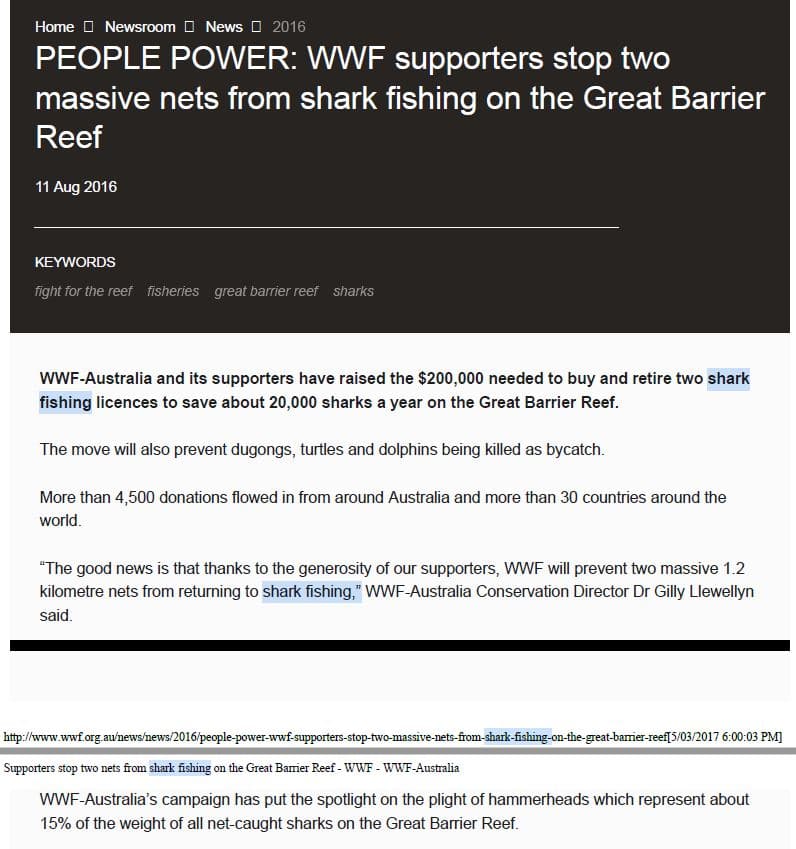PEOPLE POWER: WWF supporters stop two massive nets from shark fishing on the Great Barrier Reef. 11 Aug 2016.
WWF-Australia and its supporters have raised the $200,000 needed to buy and retire two shark fishing licences to save about 20,000 sharks a year on the Great Barrier Reef. The move will also prevent dugongs, turtles and dolphins being killed as bycatch. More than 4,500 donations flowed in from around Australia and more than 30 countries around the world. “The good news is that thanks to the generosity of our supporters, WWF will prevent two massive 1.2 kilometre nets from returning to shark fishing,” WWF-Australia Conservation Director Dr Gilly Llewellyn said. WWF-Australia’s campaign has put the spotlight on the plight of hammerheads which represent about 15% of the weight of all net-caught sharks on the Great Barrier Reef. The signs are that hammerheads in Queensland may have declined by up to 83% of 1960s population levels. Both scalloped and great hammerheads are listed in the International Union for Conservation of Nature and Natural Resources (IUCN) Red List as endangered and the Federal Environment Department is assessing whether they should be listed as threatened in Australia.
Nets of the type WWF is retiring can also kill dolphins, turtles and dugongs amid major concerns about the decline in dugong numbers. Following the 2011 floods and cyclones, there was an estimated population of only 600 dugongs between Cooktown in the north and near Bundaberg in the south. When WWF-Australia’s campaign began the aim was to retire one of five massive gill nets allowed to fish for sharks in Reef waters. But the idea generated international attention with the Guardian UK creating a video and the story featuring in Europe and the United States. People from more than 30 countries donated to the campaign enabling WWF to retire not one but two destructive nets. “Our supporters have been amazing and we can’t thank them enough,” Dr Llewellyn said.
Dr Llewellyn said that the recent green paper from the Queensland Government is a good step, but there is still a long way to go to deliver real change on the water. “We believe the world’s best loved marine park, needs the world’s best managed fisheries. What this campaign has shown us is that thousands of people want to see urgent reform of high-risk fisheries in Queensland.” WWF-Australia Media Contact: Mark Symons, Senior Media Officer, 0400 985 571, [email protected].

